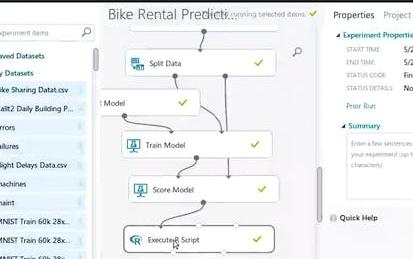

Our Courses

Writing Skills for University Success
Writing is a vital skill in university classes, whether you’re majoring in history or business management, economics or engineering. In this course, you’ll learn how to write effectively in different academic formats, especially essays and longer research papers. You’ll learn how to choose a topic for a paper, how to find reliable resources for writing it, and how to organize your ideas in a way that communicates clearly and fits the expectations of your professors. You’ll learn about the importance of correctly citing sources in your writing and university norms regarding academic honesty.
-
Course by

-
 Self Paced
Self Paced
-
 7 hours
7 hours
-
 English
English

Enhance your Writing with Adverb Clauses
If you struggle to express complex ideas in English, don’t worry! This course will lead you step-by-step on your journey to more advanced writing. In the first part of the course, you’ll learn some basic information about adverb clauses. Then, we’ll dive into the categories of ideas that adverb clauses express, and you’ll practice using subordinating conjunctions--the many grammar words that start adverb clauses. At the end of the course, you’ll learn how to use varied types of sentences in your writing, and you’ll show off all that you’ve learned by writing a paragraph.
-
Course by

-
 Self Paced
Self Paced
-
 12 hours
12 hours
-
 English
English

Using Basic Formulas and Functions in Microsoft Excel
Have you started using spreadsheets like Excel and want to learn how to write formulas and functions to perform simple data analysis? In this project, you will learn about the general format for writing formulas and functions in Excel to perform analysis on the sales data from a sample company. In this analysis, you will calculate total sums of profits, you will learn how to use functions to analyze the popularity of the items sold and you will also learn how to calculate averages and percentages of monthly profits.
-
Course by

-
 Self Paced
Self Paced
-
 3 hours
3 hours
-
 English
English

Teaching Writing Final Project
One of the goals of the Teaching Writing specialization has been to help every learner consider ways to adapt what they are learning and apply it to their specific situation, needs and interests. The theories, strategies and practices presented in these courses are sound, and can work with any student of any age and skill level, provided each learner is able to adapt their learning and apply it to their specific students, current or future.
-
Course by

-
 Self Paced
Self Paced
-
 22 hours
22 hours
-
 English
English

Build Random Forests in R with Azure ML Studio
In this project-based course you will learn to perform feature engineering and create custom R models on Azure ML Studio, all without writing a single line of code! You will build a Random Forests model in Azure ML Studio using the R programming language.
-
Course by

-
 Self Paced
Self Paced
-
 3 hours
3 hours
-
 English
English

Enhance your Writing with Noun Clauses
This course is designed to hold your hand step-by-step through the most basic concepts of noun clauses all the way to the end goal of writing a paragraph with varied noun clauses. With each individual lesson, you’ll watch both introductory and guided practice videos which will give you tips on writing noun clauses, you’ll complete independent practice exercises and check your answers, and you’ll do short quizzes. For several assignments throughout the course, you’ll practice writing noun clauses, first as individual sentences and then within a paragraph.
-
Course by

-
 Self Paced
Self Paced
-
 12 hours
12 hours
-
 English
English

Computational Thinking for K-12 Educators Capstone
In this capstone project course, you will learn to support your students in successfully completing the Advanced Placement Principles Create Task -- however this task can be useful for any course as a culminating, student-designed final programming project. You will learn to interpret and practice applying to real sample student work the Create Task rubric and have the option to modify it for your own setting.
-
Course by

-
 Self Paced
Self Paced
-
 11 hours
11 hours
-
 English
English

Richard Schechner's Introduction to Performance Studies
Performance Studies: An Introduction explores the wide world of performance--from theatre, dance, and music to ritual, play, political campaigns, social media, and the performances of everyday life. Performance studies also ranges across cultures--Asia, Africa, the Caribbean, Europe, the Americas. And it spans historical periods from the art of the paleolithic caves to YouTube and the avantgarde. This course is devised by Richard Schechner, one of the pioneers of performance studies, in dialogue with more than a dozen expert scholars and artists.
-
Course by

-
 Self Paced
Self Paced
-
 25 hours
25 hours
-
 English
English

A Practical Introduction to Test-Driven Development
To be a proficient developer you need to have a solid grasp of test writing before putting code into production. In this course, we will take a hands-on look at Test-Driven Development by writing and implementing tests as soon as week one. TDD starts with good unit tests, so we will start there. Topics will also cover translating user specs into unit tests, applying the Red-Green-Refactor mantra, and applying mocks in python with the unittest.mock module. Once finished, you will have covered all the steps of TDD before development
-
Course by

-
 Self Paced
Self Paced
-
 15 hours
15 hours
-
 English
English

Careers in Sustainability
This course is an introduction to careers in sustainability, focusing primarily on the role of a sustainability analyst at public and private organizations. Through a mix of video, print, peer review, and interactive content, learners will be able to explain sustainability and the specifics of a sustainability analyst’s job within an organization. The course is structured around two elements: topical knowledge and practical application. Throughout the course, learners can practice what they learn and get feedback from their peers to build their skills.
-
Course by

-
 Self Paced
Self Paced
-
 14 hours
14 hours
-
 English
English

Build your first Machine Learning Pipeline using Dataiku
As part of this guided project, you shall build your first Machine Learning Pipeline using DataIku tool without writing a single line of code. You shall build a prediction model which inputs COVID daily count data across the world and predict COVID fatalities.DataIku tool is a low code no code platform which is gaining traction with citizen data scientist to quickly build and deploy their models.
-
Course by

-
 Self Paced
Self Paced
-
 3 hours
3 hours
-
 English
English

Hide and Reveal Secret Rooms in Unity
In this one-hour, project-based course, you'll learn how to hide and reveal secret rooms in your game by setting up scenes, writing C# scripts and configuring GameObjects.
-
Course by

-
 Self Paced
Self Paced
-
 2 hours
2 hours
-
 English
English

Introduction to Object-Oriented Programming in C++
This course is the first of five courses aiming to help you to become confident working in the object-oriented paradigm in the C++ language. This specialisation is for individuals who want to learn about objected oriented programming. It's an all-in-one package that will take you from the very fundamentals of C++, all the way to building a crypto-currency exchange platform. During the five courses, you will work with the instructor on a single project: a crypto-currency exchange platform.
-
Course by

-
 Self Paced
Self Paced
-
 11 hours
11 hours
-
 English
English

Create a Writing Rubric with Microsoft Word
By the end of this project, you will be able to create and utilize writing rubrics within Microsoft Word. Through the Microsoft Program you will be able to support and develop rubrics for a variety of topics and assessment areas. By using a rubric as an assessment tool in Microsoft Word, you are able to effectively evaluate your learners’ comprehension of important components of their writing pieces.
-
Course by

-
 Self Paced
Self Paced
-
 1 hour
1 hour
-
 English
English

Writing in First Person Point of View
If you have always wanted to tell your own story—in a memoir, first-person essay, or any other form of autobiographical non-fiction—but felt you lacked the tools or the framework, this is the class for you. We will learn how successful first-person writing is structured to offer the reader a sense of propulsive motion, and is guided by a narrator who is deliberately crafted. We will explore the ways in which language can be used to create tone, so that the emotional freight of your words is as potent as the storytelling.
-
Course by

-
 Self Paced
Self Paced
-
 6 hours
6 hours
-
 English
English

Technical Managerial Written Skills
Writing effective documents to influence teams and decision-makers is one of the essential elements of successful management. Additionally, in all of its forms, writing remains one of the primary vehicles by which a leader exercises leadership. Just like the other forms of communication, it must be coherent, complete, make a clear argument, and include appropriate decorum.
-
Course by

-
 Self Paced
Self Paced
-
 19 hours
19 hours
-
 English
English

Intermediate Intel® Distribution of OpenVINO™ toolkit for Deep Learning Applications
This course is designed for application developers who wants to deploy computer vision inference workloads using the Intel® Distribution of OpenVINOTM toolkit. The course looks at computer vision neural network models from a variety of popular machine learning frameworks and covers writing a portable application capable of deploying inference on a range of compute devices.
-
Course by

-
 Self Paced
Self Paced
-
 English
English

Data and Statistics Foundation for Investment Professionals
Aimed at investment professionals or those with investment industry knowledge, this course offers an introduction to the basic data and statistical techniques that underpin data analysis and lays an essential foundation in the techniques that are used in big data and machine learning. It introduces the topics and gives practical examples of how they are used by investment professionals, including the importance of presenting the “data story" by using appropriate visualizations and report writing.
In this course you will learn how to:
-
Course by

-
 Self Paced
Self Paced
-
 21 hours
21 hours
-
 English
English

European Business Law: Doing Business in Europe
This six-week course titled Doing Business in Europe is the second in a series of three exploring some of the main business aspects of European Union law. Besides providing learners with a sound knowledge base of European laws and regulations relevant to establishing and managing a company within the European Union, the course also explores business considerations within a broader perspective by including inputs from leading law practitioners in the field.
-
Course by

-
 Self Paced
Self Paced
-
 15 hours
15 hours
-
 English
English

Retrieve Data using Single-Table SQL Queries
In this course you’ll learn how to effectively retrieve data from a relational database table using the SQL language. We all know that most computer systems rely on at least one database to store data. Your tax information is stored in the database used by the Internal Revenue Service. Your phone stores your contacts’ names, addresses, email addresses, and phone numbers in a database. If you shop online, you’re viewing photos, descriptions, and prices of products that are stored in a database.
-
Course by

-
 Self Paced
Self Paced
-
 2 hours
2 hours
-
 English
English

Communication skills for engineering scholars
The course teaches engineering scholars how to improve their communication skills, based on theory, examples and practical exercises. Topics include basics of rhetoric (how to be clear), basics of argumentation theory (how to be persuasive), public speaking, grant writing, scientific writing. The main target are engineering scholars; the first 3 weeks, though, can be useful to anyone wishing to improve their communication skills.
-
Course by

-
 Self Paced
Self Paced
-
 8 hours
8 hours
-
 English
English

Successful Presentation
Few kinds of communication can have the effect of a powerful presentation. Even a short speech can motivate people to change long-held beliefs or to take action, and a wonderfully delivered speech can transform a normal person into a leader. In this course, Prof. William Kuskin provides a series of pragmatic videos and exercises for successful public speaking and presentations.
-
Course by

-
 Self Paced
Self Paced
-
 21 hours
21 hours
-
 English
English

SQL Mathematical Functions
Welcome to this project-based course, SQL Mathematical Functions. In this project, you will learn how to use SQL Mathematical Functions to manipulate tables in a database. By the end of this 2-hour-long project, you will be able to use different Mathematical Functions to retrieve the desired result from a database. In this project, you will learn how to use SQL Mathematical Functions like CEIL(), FLOOR(), RANDOM(), SETSEED(), ROUND(), TRUNC(), SQRT(), CBRT(), and POWER() to manipulate data in the employees database.
-
Course by

-
 Self Paced
Self Paced
-
 2 hours
2 hours
-
 English
English

Building R Packages
Writing good code for data science is only part of the job. In order to maximizing the usefulness and reusability of data science software, code must be organized and distributed in a manner that adheres to community-based standards and provides a good user experience. This course covers the primary means by which R software is organized and distributed to others. We cover R package development, writing good documentation and vignettes, writing robust software, cross-platform development, continuous integration tools, and distributing packages via CRAN and GitHub.
-
Course by

-
 Self Paced
Self Paced
-
 21 hours
21 hours
-
 English
English

Principles of Secure Coding
This course introduces you to the principles of secure programming. It begins by discussing the philosophy and principles of secure programming, and then presenting robust programming and the relationship between it and secure programming. We'll go through a detailed example of writing robust code and we'll see many common programming problems and show their connection to writing robust, secure programs in general. We’ll examine eight design principles that govern secure coding and how to apply them to your own work. We’ll discuss how poor design choices drive implementation in coding.
-
Course by

-
 Self Paced
Self Paced
-
 16 hours
16 hours
-
 English
English



